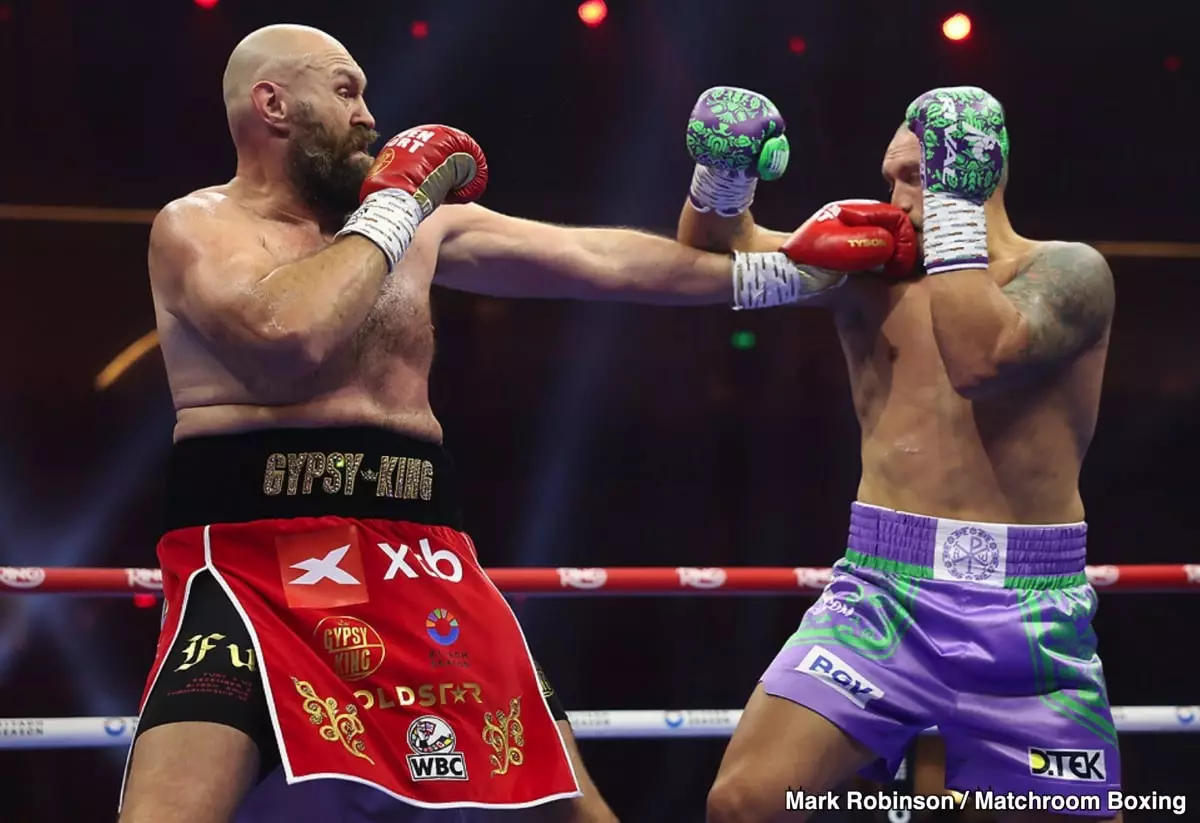Tyson Fury has dominated the heavyweights boxing scene over the past few years, but following his recent bouts with Oleksandr Usyk, the urgent discussion about his retirement has emerged. Former trainer Teddy Atlas has weighed in, arguing that not only should Fury retire but that he is doing so at an opportune moment. That said, this conversation delves deeper than just the immediate outcome of a couple of fights; it covers Fury’s overall legacy, his physical resilience, and the sometimes fickle nature of stardom in boxing.
Tyson Fury’s career has been anything but straightforward. It is marked by significant victories and numerous challenges. With a record of 34 wins, 2 losses, and 1 draw, Fury has faced fierce competitors, including Deontay Wilder, an opponent who provided some of the most electrifying fights in heavyweight history. Despite those victories, Atlas argues that these battles took a toll on him, that the grind of multiple rugged exchanges is something no boxer can escape, irrespective of their stature or skill. The question remains: How much of his essence has he left in the ring?
Atlas asserts that Fury’s competence has been overshadowed. Fury’s loss to Usyk demonstrated that he is not invincible and that his previous opponents did not pose the level of threat that Usyk does. While Fury’s legacy rests on the ability to overcome formidable challenges, his defeats against a capable athlete like Usyk bring into focus whether his past accolades are mere embellishments of a better and more complex competitor.
The boxing world often glorifies champions; however, Atlas’s assertion that Fury is not to be placed alongside legendary figures like Muhammad Ali or Joe Louis carries weight. Fury’s greatest triumph was against a specific era’s fighter, the aged Klitschko, not because he was the best of his time. This illustrates a critical point: while Fury achieved great things, he may not have faced the caliber of opponents that true greats overcame. This raises the unsettling question of how we define greatness in sports and whether having a few high-profile wins is enough to forge a lasting legacy.
His monumental victories against fighters like Dillian Whyte and Otto Wallin came with significant public attention but lacked substance—a trend that many fans are starting to recognize. Fury’s prowess, while undeniable, sits on a fragile platform that could easily crumble under scrutiny from knowledgeable critics and historians alike.
Retirement, especially in contact sports, is a complex issue. For boxers, lingering too long in the ring can lead to irreversible damage, both physically and mentally. Should Fury heed the advice of Teddy Atlas and retire, it would allow him to leave the sport with a level of integrity. As Atlas poignantly notes, great fighters should exit the ring while they still hold some semblance of their former selves.
The temptation to return, particularly if lucrative fights are on the table—such as rematches or bouts against contemporary favorites—may prove irresistible. However, for the sake of his long-term health and legacy, it is essential that Fury weighs his options carefully. One need not look far into boxing’s history to see great champions tarnishing their names with valiant but misguided comebacks.
Ultimately, the question of whether Tyson Fury should retire extends beyond his current ability or losses; it is a reflection of how he wants to be remembered. If Fury steps back from boxing now, he can embrace his career’s highs, cultivate his growing family, and enjoy the satisfaction of having engaged in some of boxing’s most talked-about fights.
Conversely, if he decides to pursue more fights, the allure of fame and financial gain may overshadow rationale decision-making, potentially leading to diminishing returns on both his performance and public perception. Teddy Atlas’s sentiments resonate beyond a mere suggestion of retirement; they suggest a journey towards a future that recognizes one’s limitations while celebrating past achievements. For Tyson Fury, the decision lies just at the intersection of challenge and fulfillment, waiting for the answer only he can provide.

